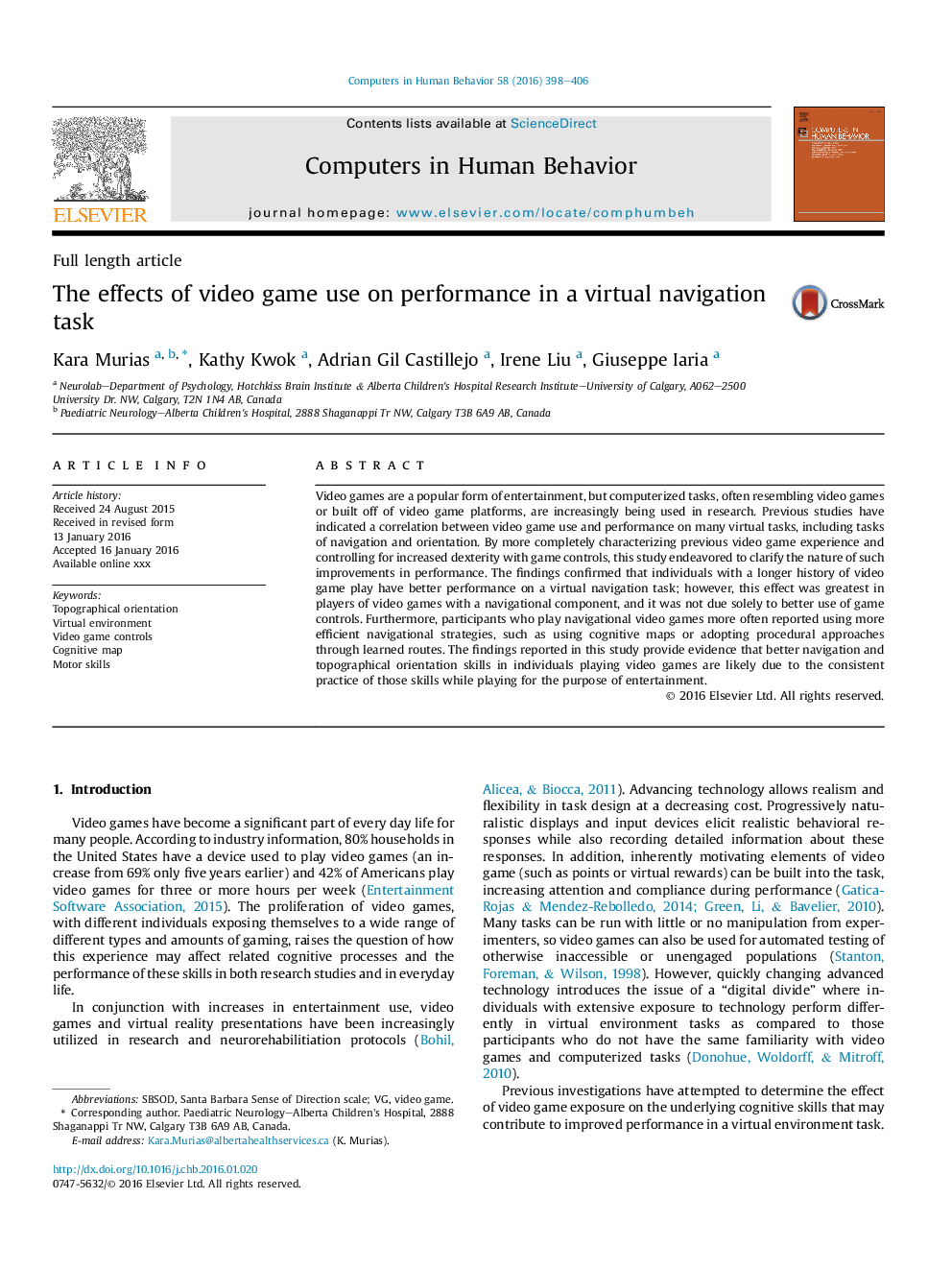| Article ID | Journal | Published Year | Pages | File Type |
|---|---|---|---|---|
| 6837589 | Computers in Human Behavior | 2016 | 9 Pages |
Abstract
Video games are a popular form of entertainment, but computerized tasks, often resembling video games or built off of video game platforms, are increasingly being used in research. Previous studies have indicated a correlation between video game use and performance on many virtual tasks, including tasks of navigation and orientation. By more completely characterizing previous video game experience and controlling for increased dexterity with game controls, this study endeavored to clarify the nature of such improvements in performance. The findings confirmed that individuals with a longer history of video game play have better performance on a virtual navigation task; however, this effect was greatest in players of video games with a navigational component, and it was not due solely to better use of game controls. Furthermore, participants who play navigational video games more often reported using more efficient navigational strategies, such as using cognitive maps or adopting procedural approaches through learned routes. The findings reported in this study provide evidence that better navigation and topographical orientation skills in individuals playing video games are likely due to the consistent practice of those skills while playing for the purpose of entertainment.
Related Topics
Physical Sciences and Engineering
Computer Science
Computer Science Applications
Authors
Kara Murias, Kathy Kwok, Adrian Gil Castillejo, Irene Liu, Giuseppe Iaria,
